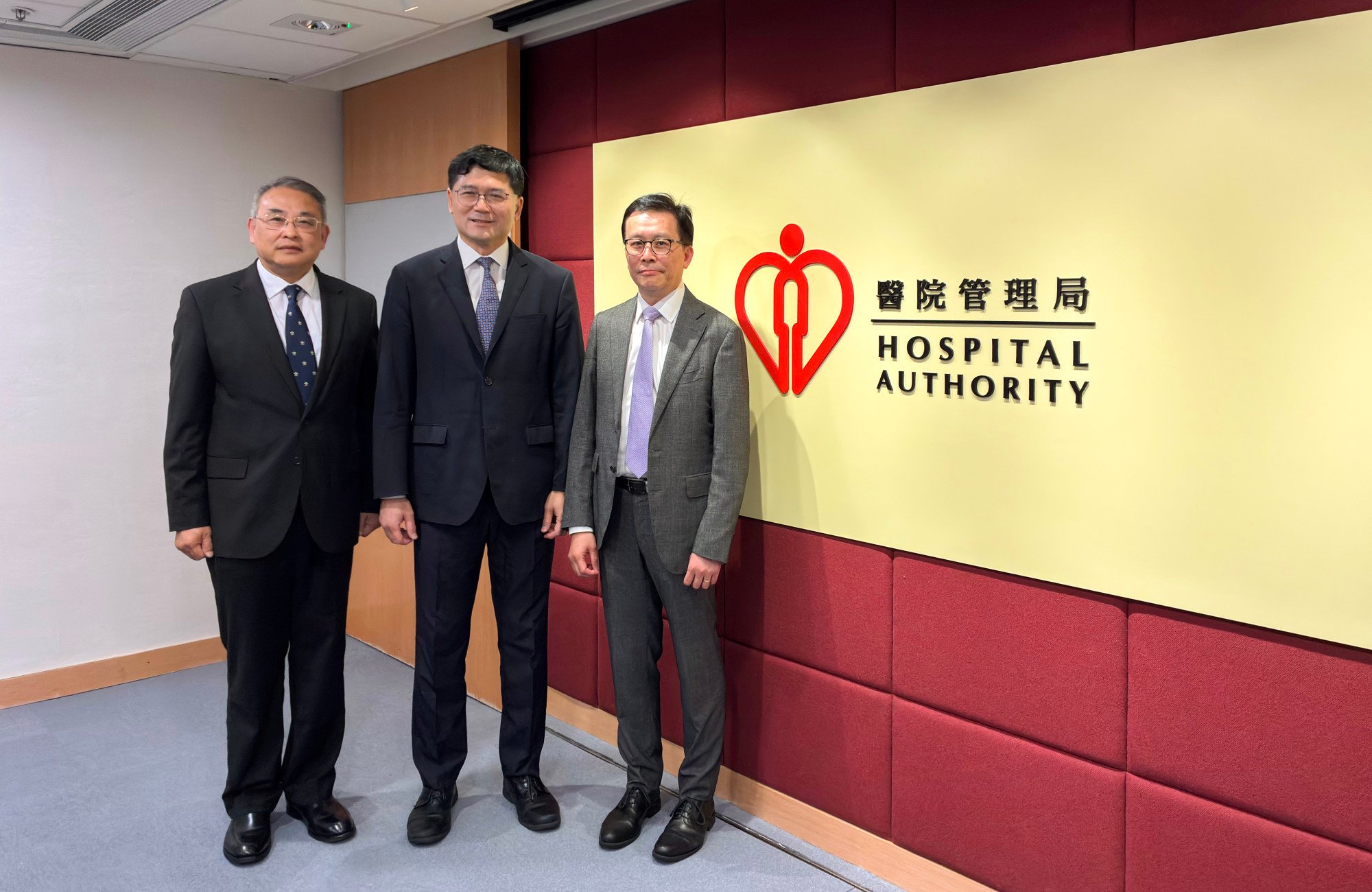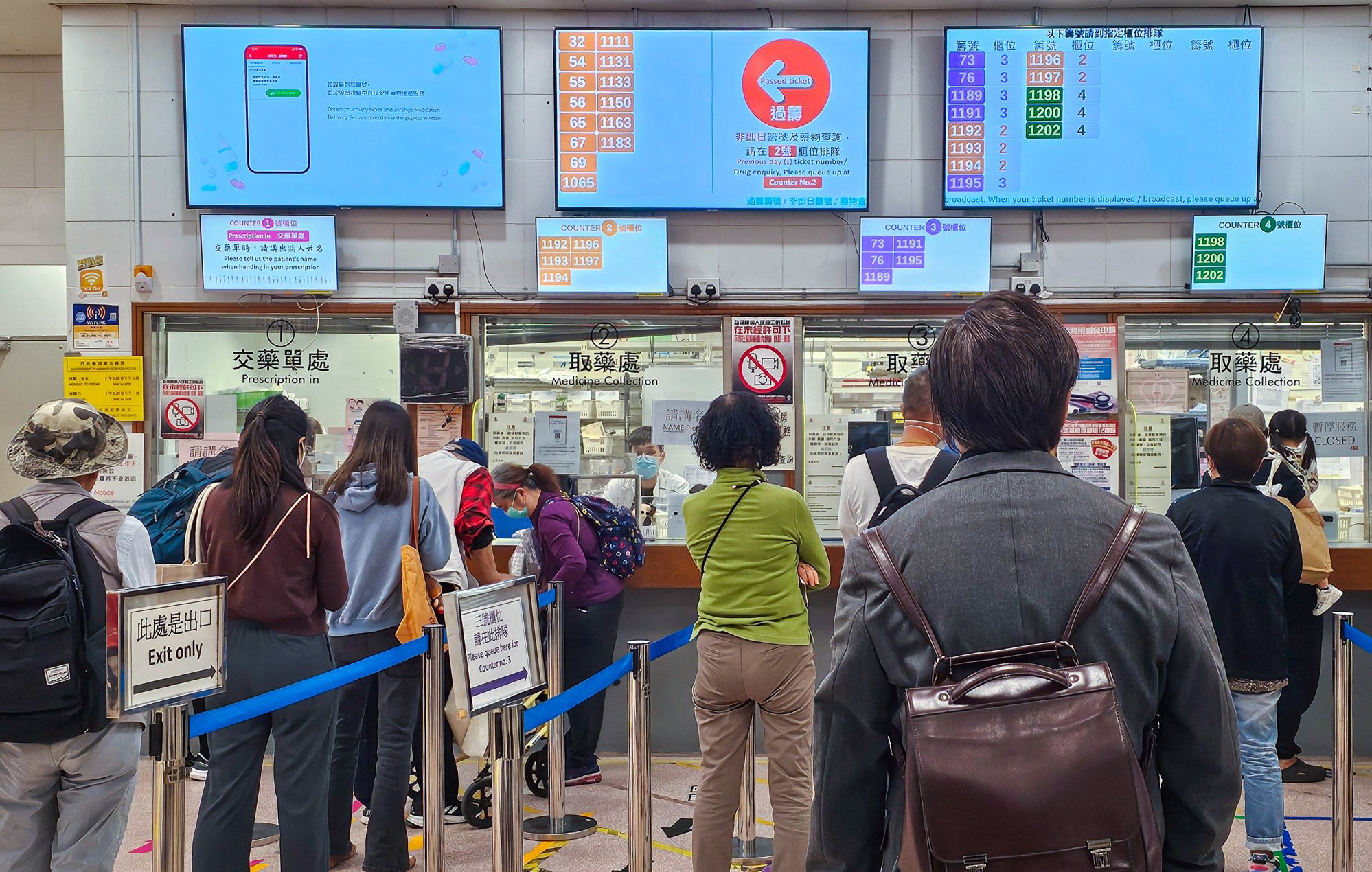Hong Kong patients can expect to pay about 20 per cent less for some drugs following negotiations by public hospitals with pharmaceutical companies, as part of government efforts to bring down operational costs and medication prices.
The negotiation is part of the public healthcare reform launched by the government earlier this year in a bid to enhance the system's sustainability, step up support for patients with severe and urgent conditions, and reduce wastage of medical resources.
Hospital Authority chief executive Dr Tony Ko Pat-sing said he expected a range of initiatives to save authorities at least HK$1 billion (US$127 million), with measures including drug price reductions, an expansion of sources of suppliers and the implementation of energy efficiency measures.
Do you have questions about the biggest topics and trends from around the world? Get the answers with SCMP Knowledge, our new platform of curated content with explainers, FAQs, analyses and infographics brought to you by our award-winning team.
One of the major moves was to bring down drug prices through the process of procurement.
"When drugs at the Hospital Authority are reasonably priced, we can use the [extra] money to buy more new drugs, or expand the [safety net] protection offered in the drug formulary," said the authority's chief pharmacist, William Chui Chun-ming, referring to the list of medications used in public hospitals and clinics.
Chui, addressing a press conference on Wednesday, said a cost assessment panel was set up by the authority to conduct price negotiations with pharmaceutical firms. So far, 70 per cent of drug makers, most from foreign countries, were willing to give discounts at an average reduction of 20 per cent.
He said this was made possible as the authority took reference from drug prices offered under the medical insurance system of mainland China. Prices there were generally lower than those in the city, due to bulk procurement for its massive population.

Beijing last year announced that its drug price negotiation programme had saved patients over 880 billion yuan (US$122.6 billion).
Another strategy the authority adopted was comparing the prices of similar types of drugs that were already being used by public hospitals.
"When there is competition, [pharmaceutical firms] would be willing to cut prices," Chui said.
He said a drug that treated multiple myeloma, a blood cancer, ended up costing half as much, as similar medications being used by the authority were cheaper.
Public hospitals are also looking to purchase more generic drugs instead of brand-name ones, in a bid to increase drug supply and introduce price competition.
Chui said the authority would send those drugs to laboratories to ensure their safety, efficacy and quality.
As Hong Kong is placing more importance on clinical trials in its endeavour to become an international medical and innovation hub, the authority would also actively monitor drugs that were in phase three clinical trials and approach developers to explore the possibility of their inclusion for use in public hospitals soon.
"We hope to get hold of their data, especially safety data ... and see which ones would be suitable for inclusion in the drug formulary," Chui said, adding that they were mostly medications for cancer and rare diseases.
Other efforts in enhancing public hospitals' efficiency included the use of artificial intelligence (AI) in drafting medical reports, a move that started in March.

Ko said the new approach could help save 40 per cent of the time staff spent on handling paperwork.
About 80 per cent of medical reports could be processed by AI, with the remaining 20 per cent of more complex ones still manually handled by doctors.
The authority was also expanding its efforts to source more suppliers of medical devices, including those from the mainland, to introduce competition and costs.
It spent HK$5.7 billion in the 2023-24 financial year on the procurement and maintenance of devices, but the new approach helped cut spending by at least 10 per cent.
Ko said drugs and devices used by public hospitals were mostly from overseas, but the Covid-19 pandemic offered the city more opportunities to use products from the mainland.
"Both the quality and quantity of medical devices from the mainland were very high, giving us a great deal of choice," he said.
More Articles from SCMP
Sean Stein on why US businesses are walking a tightrope to stay in China
China could counter US tech curbs by engaging Global South on AI, analysts say
As trade deals show, the US now seeks rent from Asean, not partnership
Write a funny caption for people at this hot dog-eating contest.
This article originally appeared on the South China Morning Post (www.scmp.com), the leading news media reporting on China and Asia.
Copyright (c) 2025. South China Morning Post Publishers Ltd. All rights reserved.
Post a Comment for "Hong Kong public hospital patients to pay 20% less for drugs"